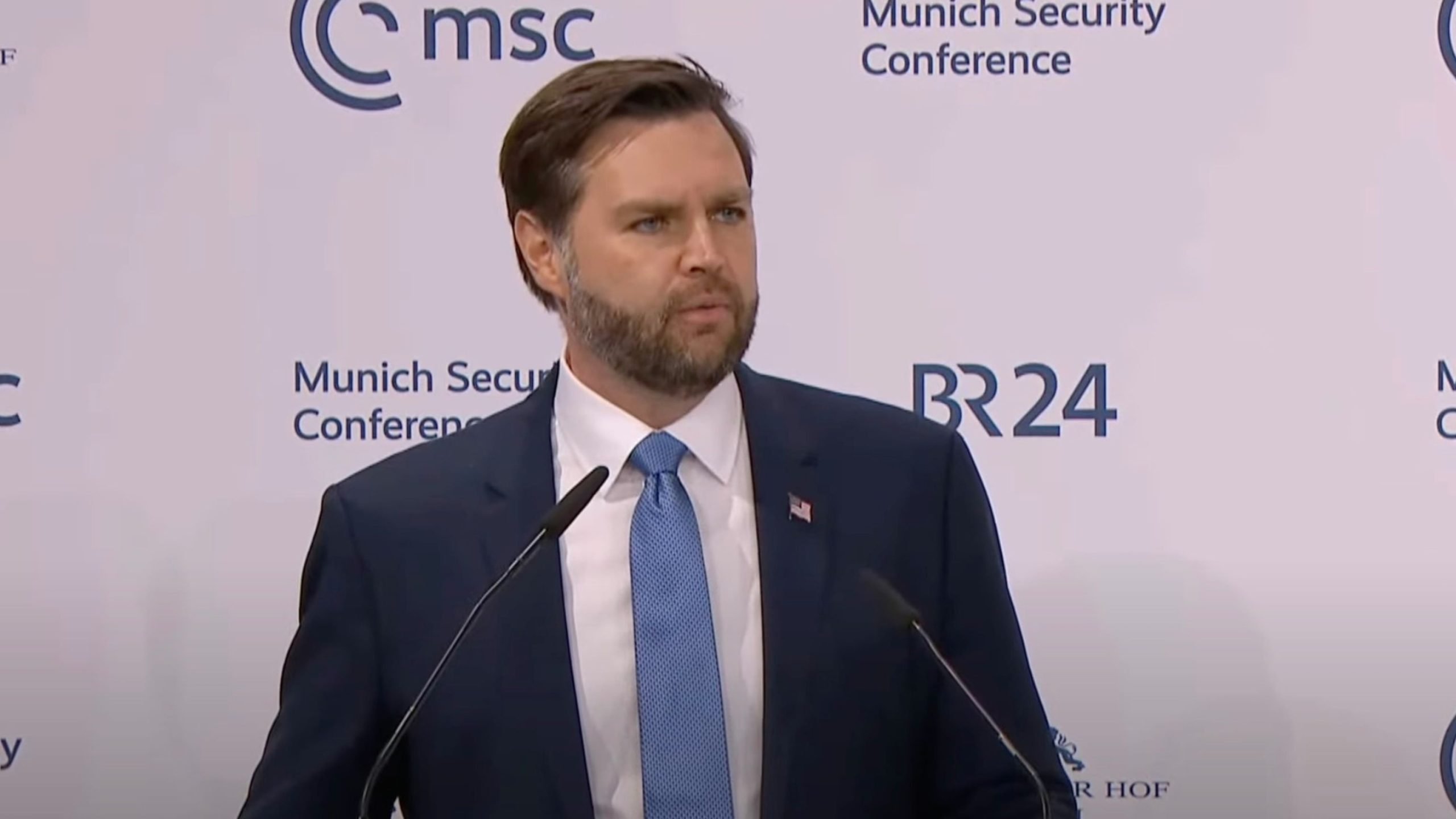At the Munich Security Conference on Friday, US Vice President JD Vance delivered a forceful rebuke of Europe’s handling of free speech and democracy, accusing several governments of undermining fundamental rights. His remarks, which took direct aim at some of America’s closest allies, painted a troubling picture of increasing restrictions on individual liberties across the continent.
Vance was particularly critical of the United Kingdom, arguing that its policies have placed religious freedoms at risk. “And perhaps most concerningly, I look to our very dear friends, the United Kingdom, where the backslide away from conscience rights has placed the basic liberties of religious Britons, in particular, in the crosshairs,” he said. He suggested that political and legal developments in Britain were eroding core democratic values.
The Vice President also expressed deep skepticism over Western security priorities, downplaying concerns about Russian political interference — a topic that has long dominated discussions among European and American officials. Echoing a stance frequently taken by President Donald Trump, Vance challenged the prevailing narrative around foreign meddling, instead turning the focus inward.
“For years, we’ve been told that everything we fund and support is in the name of our shared democratic values, everything from our Ukraine policy to digital censorship, is billed as a defense of democracy,” he stated. “But when we see European courts canceling elections and senior officials threatening to cancel others, we ought to ask whether we’re holding ourselves to an appropriately high standard.”
Despite the ongoing war in Ukraine being a major topic at the conference, Vance largely avoided the issue. His attention remained on what he described as internal threats to democracy within Europe. He criticized Brussels for suppressing social media platforms under the pretense of fighting hate speech, accused Germany of using state power to silence dissenting opinions, and condemned Sweden for prosecuting a Christian activist. “Across Europe, free speech, I fear, is in retreat,” he warned.
His critique was not limited to Europe. Vance also took aim at the previous US administration, arguing that President Joe Biden’s policies contributed to censorship on social media. “I will admit that sometimes the loudest voices for censorship have come not from within Europe, but from within my own country, where the prior administration threatened and bullied social media companies to censor so-called misinformation. Misinformation, like, for example, the idea that coronavirus had likely leaked from a laboratory in China.”
He framed the upcoming Trump administration as a direct contrast to what he described as government-enforced digital suppression. “So I come here today, not just with an observation, but with an offer. And just as the Biden administration seemed desperate to silence people for speaking their minds, so the Trump administration will do precisely the opposite.”
“There is a new sheriff in town, and under Donald Trump’s leadership. We may disagree with your views, but we will fight to defend your right to offer it in the public square.”
Vance also took aim at a recent election controversy in Eastern Europe. “Now, we’re at the point, of course, that the situation has gotten so bad that this December, Romania straight up canceled the results of a presidential election based on the flimsy suspicions of an intelligence agency and enormous pressure from its continental neighbors.” He questioned the justification for this decision, stating, “Now, as I understand it, the argument was that Russian disinformation had infected the Romanian elections.”
He further challenged the notion that minor interference from foreign actors should be seen as an existential threat to European democracies. “You can believe it’s wrong for Russia to buy social media advertisements to influence your elections. We certainly do. You can condemn it on the world stage, even. But if your democracy can be destroyed with a few hundred thousand dollars of digital advertising from a foreign country, then it wasn’t very strong to begin with.”
Still, Vance struck a note of optimism, expressing confidence in the resilience of European institutions — provided they resist the growing impulse toward censorship. “Now, the good news is that I happen to think your democracies are substantially less brittle than many people apparently fear. And I really do believe that allowing our citizens to speak their mind will make them stronger still.”










